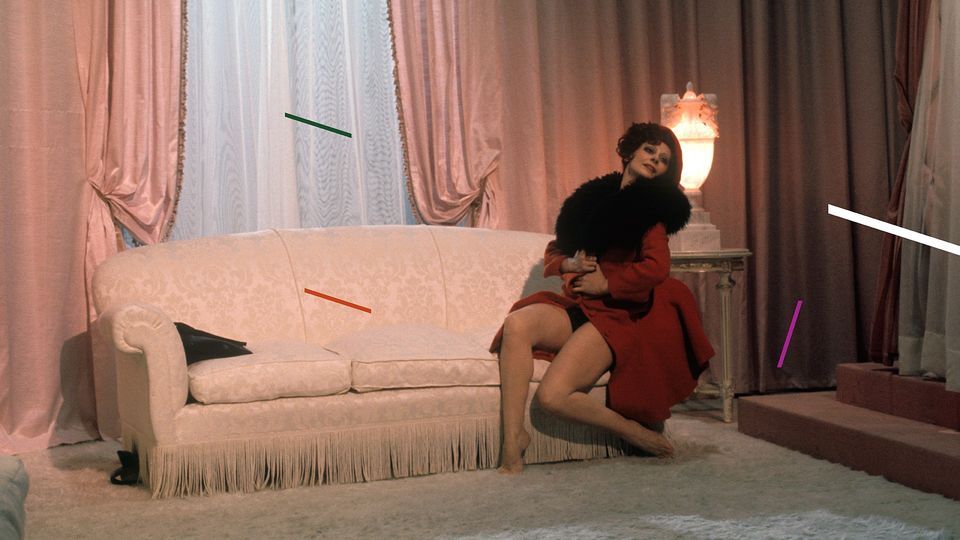
Advertisement
A cím azt jelenti: emlékezem. Ebből persze nem következik, hogy ezt el is kellene hinnünk Federico Fellininek. Félreértés ne essék, Fellini gyakran idéz saját életének különböző szakaszaiból, de aki átfutja életrajzát, percek alatt meggyőződhet arról, hogy itt - szokás szerint - töredékekből, anekdotákból, legendákból építkezik. Szóval Titta nem egyenlő a rendezővel - de ettől még lehetnek közös emlékeik. Ez alkalommal a forgatókönyvírói - Tonino Guerra és Fellini - egy kicsit úgy mesélnek, mint Bohumil Hrabal Pepin bácsija. Még narrátoraik is vannak…A Fellini-rajongók számára az Amarcord megkerülhetetlen. Esszencia. És kivételesen a laza szerkezetű történetmesélést a rendező keretbe foglalja. Az Amarcord egy év története - nyárpelyhektől nyárpelyhekig, télűző pogány szertartástól esküvőig. Egy kisváros élete élettel-halállal. Néha vidám, néha szomorkás. A karakterek viszont felfoghatatlanul erősek. És már sokadszorra szembesülhetünk azzal, hogy Fellininél a szereplőválogatás kulcskérdés. És kéretik nem pusztán az epikus keblekre és tomporokra gondolni. Állandóan visszatérnek filmjeiben a szélsőséges testi jellemzők: kövérek és soványak, óriások és törpék. Filmjeinek többségében pedig megjelenik a Szépség. Nem feltétlenül konvencionális szépségről van szó még a kor divatja szerint sem. Sokkal inkább a történetben játszó szemlélők, a közösség által elismert szépség mutatkozik meg a vásznon. (Megesik, hogy Fellini egy igazi szépséget is felvonultat, de ez inkább a romlatlanság, a testi funkciók fölött álló szépség megjelenítése.) Érdemes megfigyelni azt is, hogyan alkalmazza a testi hibákat (szemölcsök, szeplők, sebek stb.) a karakterek meghatározásában. Az biztos, hogy Fellini filmjei több rendezőt is megihlettek. Nem nehéz például az Amarcord hatását felfedeznünk Giuseppe Tornatore műveiben.
Olasz nyelven, magyar felirattal.
A vetítést megelőző és az azt követő beszélgetés magyar nyelven zajlik.
//
The meaning of the title of the film: I remember. Of course, it doesn't follow that you have to believe Federico Fellini. Let's set things straight: though Fellini often uses various parts of his own life, if you take a quick look at his story of his life you will soon realise that - as expected - it is constructed from fragments, anecdotes and legends. In other words, the character of Titta does not directly represent the director - though they do have some shared memories. On this occasion, the screenwriters - Tonino Guerra and Fellini - tell the story in a style akin to that of Bohumil Hrabal's Uncle Pepin. There are even narrators...
For Fellini fans, Amarcord is a must. Essential. And, for once, the director places the film into the framework of a loosely edited story. Amarcord is the story of a year - from poplar seeds to poplar seeds, and from a winter's pagan ceremony to a wedding. Life and death in the life of a small town. Sometimes happy, sometimes sad. The characters, however, are incredibly strong. And, once again, we can see that with Fellini, casting is key. And they are not thinking merely of epic womanly curves. Extreme physical characteristics are a recurring theme in his films. Fat people and thin people, giants and dwarves. Beauty does, though, make an appearance in most of his films. Not necessarily conventional beauty, or even that of the fashion of the times. Instead, it is far more often the beauty in the eye of the observers in the story and the audience displayed on the screen. (There are also times when Fellini will use a true beauty, though this is likely to be beauty that represents purity and a sphere above and beyond bodily functions.) It is also worth noting how he uses physical imperfections (warts, freckles, scars, etc.) to help define the characters in his films. There is no question that Fellini's films have inspired many directors. It is easy, for example, to see the influence of Amarcord in the films of Giuseppe Tornatore.
In Italian, with Hungarian subtitles.
The discussions before and after the screening are conducted in Hungarian.
///
A Müpa social media házirendje:
https://www.mupa.hu/kozossegi-mediafeluleteinkre-vonatkozo-szabalyok
https://www.mupa.hu/en/social-media-policies
Advertisement
Event Venue & Nearby Stays
Müpa Budapest, Komor Marcell utca 1., Budapest, Hungary
Tickets
